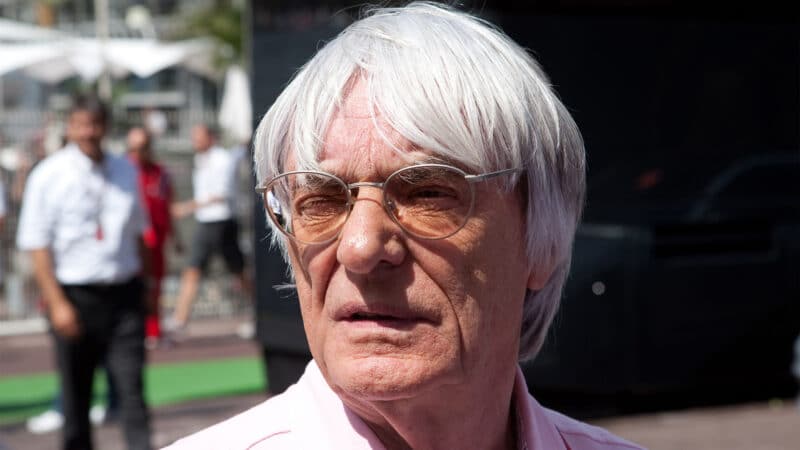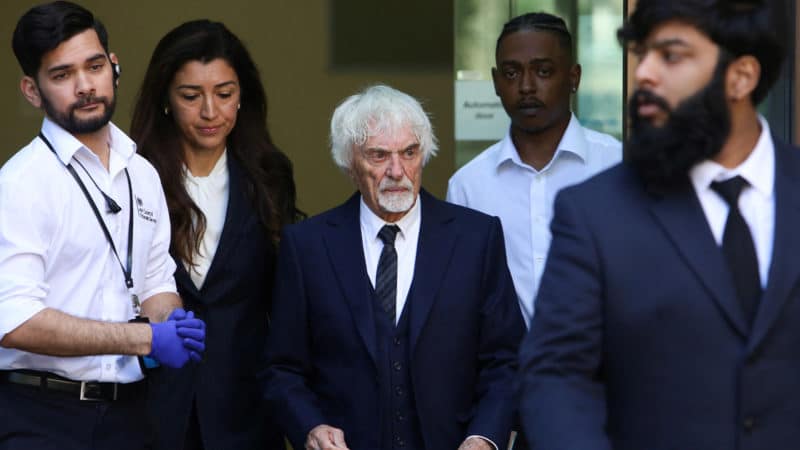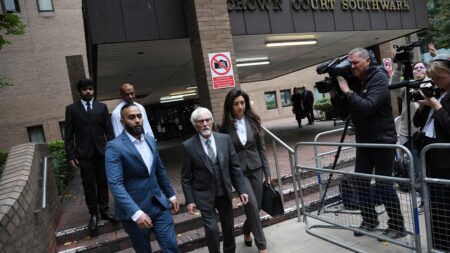I first did a long sit-down one-to-one interview with him during the 2000 Belgian Grand Prix weekend. It had taken me four years to arrange. I decided to get the photoshoot bit out of the way first, so I quickly introduced our photographer and his assistant, who, as is sometimes the way of things with artisans who style themselves as artists, both went by words rather than names. “Mr Ecclestone, meet our photographer Rip and his assistant Icy,” I ventured. Rip and Icy issued nervous greetings. Bernie merely scowled.
As the ’shoot progressed, he continued to grimace. “Could you, er, erm, smile, slightly, a bit?” asked Icy.
“I am smiling,” came the growled reply. “You should see me when I’m miserable.”
Ecclestone’s answers were and are usually short, stark and unencumbered by a need to reflect. In his pomp, by which I mean the 45 years between his acquisition of Brabham in 1971 and his departure from the role of F1’s CEO in 2016, he often seemed to fashion his oratorical manner after that of a B-movie gangster, albeit an incongruously softly-spoken one. During our Spa 2000 interview he told me that he had been in receipt of many death threats (“they’d better not miss, that’s all”); had few good friends (“my family is very important to me, but that’s it”); liked Michael Schumacher (“lovely guy”); respected the monarchy (“the Queen is super”); and, as had been reported in a Belgian newspaper a few days before, feared nothing, not even death.
“Did you really say that?” I asked him.
“Probably not but, even if I didn’t, it’s true anyway.”
“Really? You’ve never felt fear in your whole life?”
“No.”
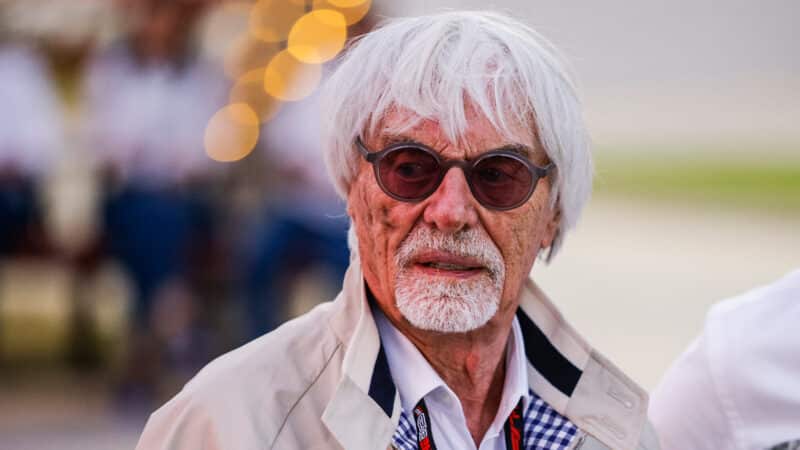
Ecclestone remained at the heart of F1 for over 60 years — making it what it is today
Gongora/NurPhoto via Getty Images
I believed him then, I believe him now, and I think his genuine fearlessness — his sheer nerve, his brass neck, his ruthless opportunism, his absolute refusal to be cowed — has been the author of his enormous success as well as the cause of his serial opprobrium. Moreover, when he has dropped a bollock, as he has often, it was always his aides rather than the man himself who looked and sounded perturbed. He once said that women “should be dressed in white, like all domestic appliances”. When asked whether a woman would ever race in F1 again, he replied, “What I’d really like is to find the right girl driver, perhaps a black girl with super looks, preferably Jewish or Muslim, who speaks Spanish.” While being interviewed in a restaurant by a female Times journalist, he remarked, “Waiters are like hookers, never around when you want them.” He also said: “Anyone who doesn’t speak English isn’t worth speaking to”; Adolf Hitler “got things done”; and, just last year, that he “would take a bullet for” Vladimir Putin, whom he described as “a first-class person”.
Those are just a small selection of his many bollocks dropped, but it is undoubtedly true that F1 owes a hefty chunk of its enormous global success to the short, bold man who grabbed it by the scruff of its amateurish neck 50-odd years ago. But even before that he was brave. Tomorrow marks the 65th anniversary of the passing of Stuart Lewis-Evans, who died aged 28 of burns received six days before in the 1958 Moroccan Grand Prix, at Ain-Diab, on the Corniche of Casablanca. Ecclestone was his manager, but he was more than that: six months Lewis-Evans’ junior, Bernie regarded Stuart as his best mate. Suffering dreadful pain all over his body, covered in bandages and dressings, lying on a stretcher in a space made available by the removal of a couple of rows of seats in a small plane, poor Lewis-Evans was flown back to England, Ecclestone at his side, occasionally raising a cup to his friend’s lips to offer him sips of sugary tea. He died in East Grinstead Hospital, West Sussex, whose burns unit had become famously advanced during World War II but whose doctors and nurses were nonetheless unable to save him.
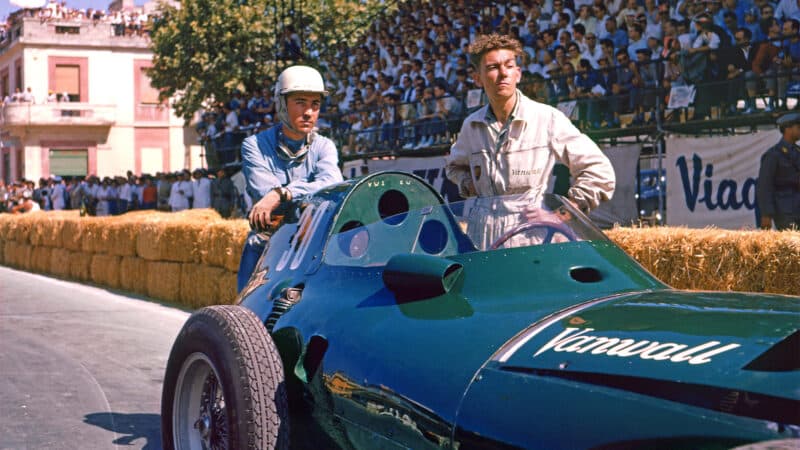
Ecclestone’s first friend in racing, Stuart Lewis-Evans, waits for the start of the 1957 Pescara GP
Grand Prix Photo
Ecclestone then disappeared from F1, and he played no part in it during the early and mid 1960s. Returning towards the end of that decade, by now managing another close pal, Jochen Rindt, he was also eyeing a much bigger role, that of F1 supremo, which he wrested out of nowhere and created out of nothing, the results of which have been the prodigious growth of F1 as a global mega-sport and the accumulation for Ecclestone of literally untold personal wealth. When, like Lewis-Evans, Rindt was killed as a result of an F1 shunt — at the same tender age of 28 — Ecclestone kept buggering on, as Winston Churchill had famously described such unwavering tenacity. He has kept buggering on ever since.

